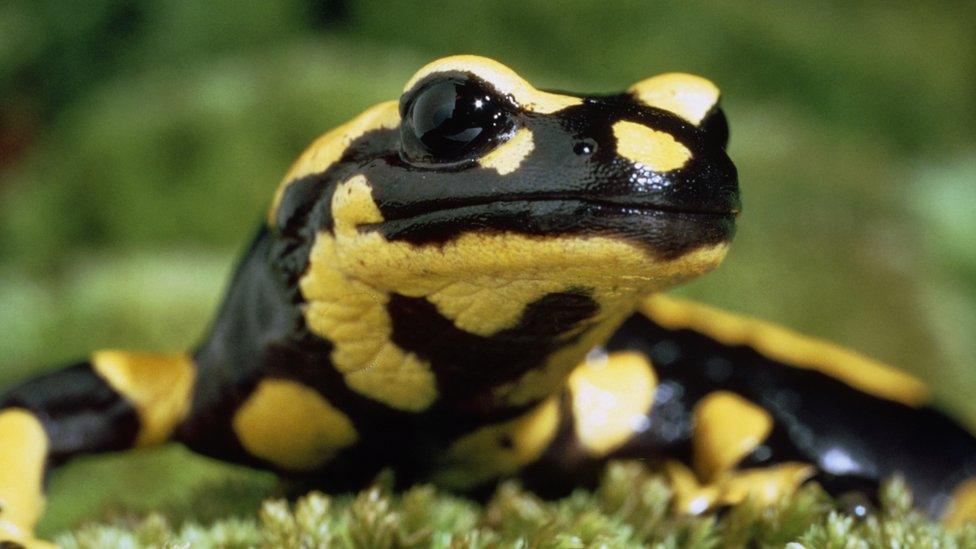'Perfect storm' threatens Europe's salamanders
- Published

The fire salamander is one of the best-known salamander species in Europe
Urgent action is needed to protect wild salamanders in Europe from a deadly infection, say scientists.
The disease may end up wiping out all vulnerable species, with zoos and gene banks the only conservation option, they warn.
A fungal infection introduced to northern Europe several years ago behaves as a "perfect storm", say experts.
It persists in the environment and may be spread by newts and birds.
The fungus, known as B. salamandrivorans, or Bsal, killed almost all fire salamanders in an outbreak in The Netherlands in 2014.
Since then, there have been outbreaks in wild salamanders and newts in Belgium and Germany.
Researchers led by An Martel of Ghent University in Belgium, are calling for urgent monitoring across Europe.
However, they say that there are few options to prevent the disease spreading in the wild, meaning conservation efforts should focus on zoos, captive breeding and gene banks.
The golden-striped salamander lives in forests in Portugal and Spain
Commenting on the study, published in the journal, , Matthew Fisher of Imperial College London, said the fungus was not unlike the "perfect pathogen" portrayed in the science-fiction film, Alien.
"More must be done to try to conserve fire salamanders and other susceptible amphibian species that have restricted ranges and are under direct threat of extinction from Bsal," he said.
"It is currently unclear how Bsal can be combated in the the wild beyond establishing 'amphibian arks' to safeguard susceptible species are the infection marches relentlessly onwards."
The fire salamander (Salamandra salamandra) is one of the best-known salamander species in Europe.
Scientists expect local extinctions to occur, but say it will take a long time for the infection to reach populations in southern Europe, such as those in Spain and Portugal.
UK threats
Prof Fisher said the real danger is for species of salamander that have very restricted ranges. Some, such as Lanza's alpine salamander and the golden-striped salamander, are on the
"If Bsal reaches these species, they could go rapidly extinct," Prof Fisher told ģÉČËŋėĘÖ News.
Great crested newts are very susceptible to Bsal, he said. So far, the infection has not emerged in the natural environment in the UK, although it is present in captive populations.
"It is imperative that Bsal is not introduced to the UK natural environment as that could lead to declines or even extinctions in conserved UK species - primarily great crested newts," said Prof Fisher.
Follow Helen on .